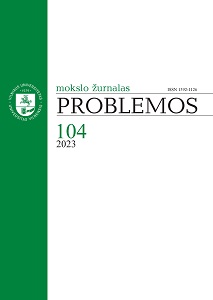The Best Constitution for the Flourishing Lives: Aristotle’s Political Theory and Its Implications for Emancipatory Purposes
The Best Constitution for the Flourishing Lives: Aristotle’s Political Theory and Its Implications for Emancipatory Purposes
Author(s): Andrius BielskisSubject(s): History of Philosophy, Political Theory, Ancient Philosphy
Published by: Vilniaus Universiteto Leidykla
Keywords: Aristotle; human flourishing; politeia; the best polis; excellence (aretē); citizen; the common good;
Summary/Abstract: The aim of this paper is to discuss the issue of the best constitution given Aristotle’s account of human flourishing articulated in the Nicomachean Ethics. There, Aristotle claims that monarchy is the supreme form of constitution. A similar claim is repeated in Politics. The paper argues that these claims sit uneasily with Aristotle’s teleological accounts of the polis, the citizen, and his discussion of the virtues of the citizen and the good man in Politics. Given Aristotle’s philosophical definition of the state as “an association of equals for the sake of the best possible life” and his notion that “the best is happiness, and that consists in excellence and its perfect actualization and its employment”, and Aristotle’s argument on the relationship between the good man and the good citizen, this paper concludes that the best constitution is politeia. Yet, simply to argue so is not enough if we are to rescue Aristotle from his inconsistencies and his claims on “natural inequalities”. Finally, a more radical interpretation of Aristotle is outlined, which rejects Aristotle’s separation between the oikos and the polis and argues that the verticality of the former is philosophically arbitrary and contradicts the revolutionary implications of Aristotle’s normative teleology.
Journal: Problemos
- Issue Year: 2023
- Issue No: 104
- Page Range: 86-103
- Page Count: 18
- Language: English

